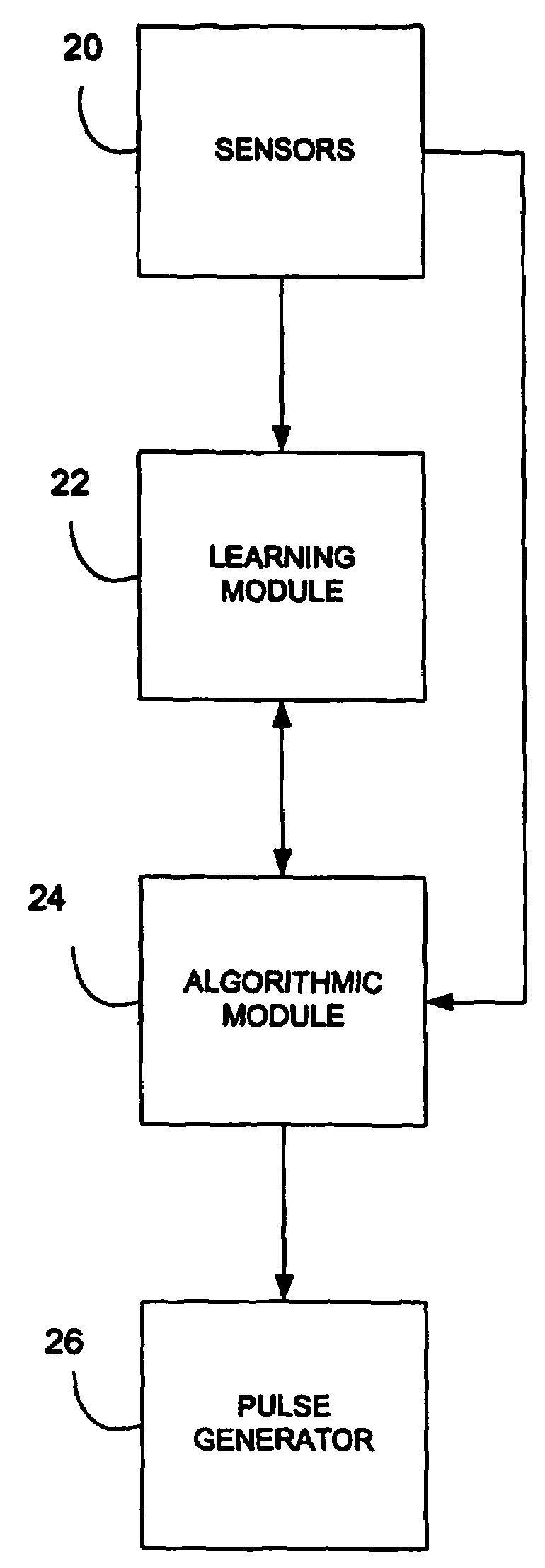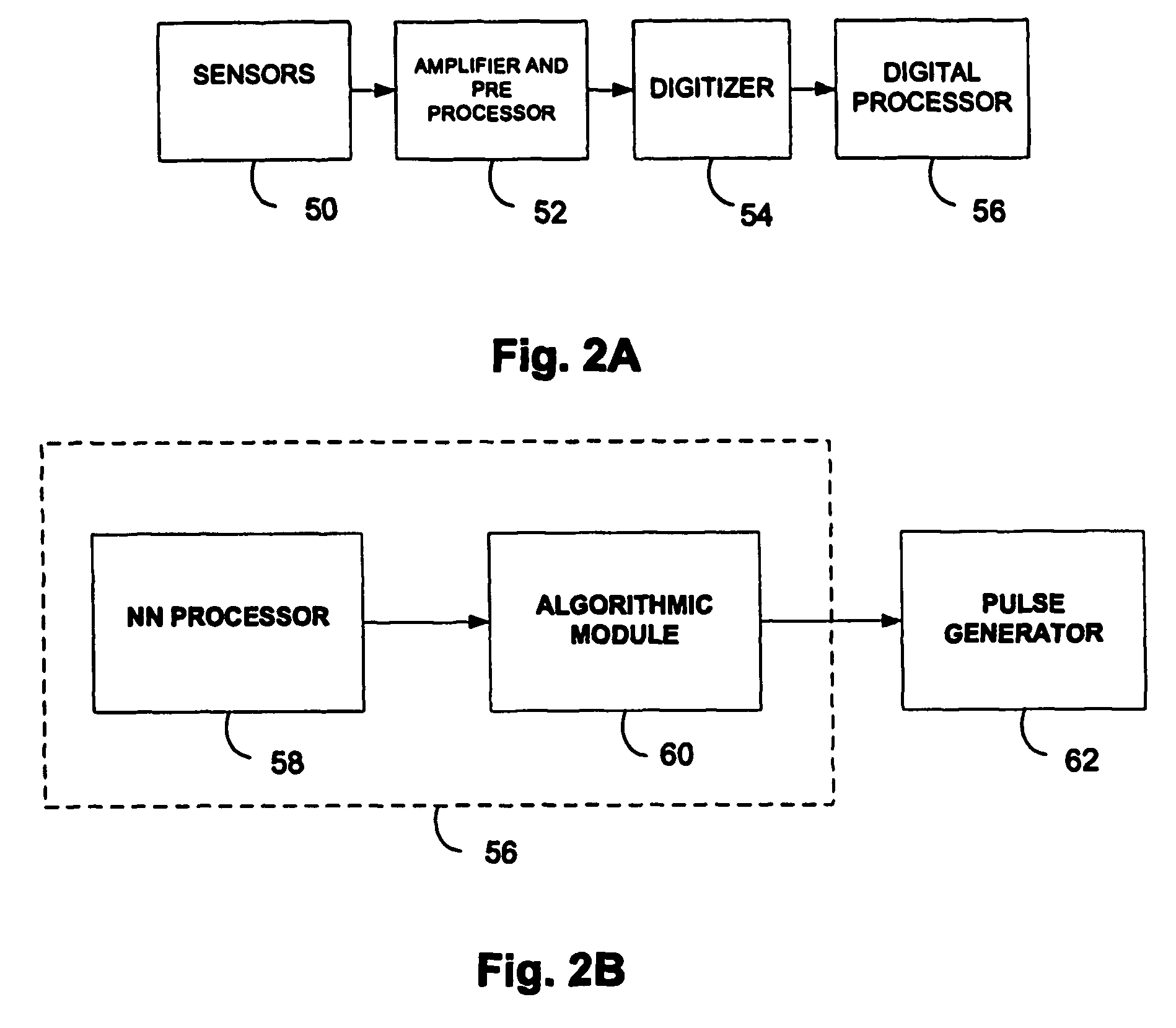Adaptive cardiac resynchronization therapy system
a technology of adaptive cardiac resynchronization and therapy system, applied in the field of medical devices, can solve the problems of inability to achieve optimal delivery of crt, inability to optimise the av delay, and large optimization of the crt device using echocardiography
- Summary
- Abstract
- Description
- Claims
- Application Information
AI Technical Summary
Benefits of technology
Problems solved by technology
Method used
Image
Examples
Embodiment Construction
General System Architecture
[0017]A device of the invention is a feed-back controlled system for delivering input stimuli to the patient's body, in a manner which takes account of the body's significant physiological status relating to the delivered input stimuli.
[0018]A system of the invention is an adaptive, hemodynamic sensitive device, for regulating the controlled delivery of physiologically active signals, chemical or electrical. A most typical implementation is the regulation of heart ventricular contractions. In FIG. 1 to which reference is now made, a schematic description of the system of the invention shows its main building blocks. Sensors 20 feed physiological information into a learning module which is typically a neural network module 22 and to the algorithmic module 24. Algorithmic module 24 receives processed data from the neural network module and controls the adaptations schemes of the neural network module 22. Pulse generator 26 issues impulses at time and places ...
PUM
 Login to View More
Login to View More Abstract
Description
Claims
Application Information
 Login to View More
Login to View More - R&D
- Intellectual Property
- Life Sciences
- Materials
- Tech Scout
- Unparalleled Data Quality
- Higher Quality Content
- 60% Fewer Hallucinations
Browse by: Latest US Patents, China's latest patents, Technical Efficacy Thesaurus, Application Domain, Technology Topic, Popular Technical Reports.
© 2025 PatSnap. All rights reserved.Legal|Privacy policy|Modern Slavery Act Transparency Statement|Sitemap|About US| Contact US: help@patsnap.com



